FAMOUS (& OUTSTANDING ) MacGREGORS
who have made an impression on the world
|
Special presentation |
|
There are many innunguaqs in Canada, the largest being near Schomberg, Ontario. There are also Canadian innunguaqs throughout the world, in front of the Canadian Embassy in Washington, at the headquarters of NATO in Brussels, and in Kandahar, Afghanistan honouring four of our soldiers killed by "friendly fire". This particular innunguaq is described in an Olympic press release as "a uniquely Canadian symbol of friendship, hospitality, strength, teamwork, and the vast Canadian landscape". It will doubtlessly become very well known as the 2010 Olympics draws the attention of the world, and it is uniquely MacGregor by virtue of its creator. Congratulations Elena! |
Black, Clint (MacGregor pseudonym). Clint
Patrick Black was born on 04
February, 1962 in New Jersey but was raised in Katy, a suburb of Houston, Texas. He
began playing musical instruments at an early age, first the mouth organ, then the guitar.
was born on 04
February, 1962 in New Jersey but was raised in Katy, a suburb of Houston, Texas. He
began playing musical instruments at an early age, first the mouth organ, then the guitar.
At the age of 15, he began writing songs, as well as performing at his brother Kevin's band. In the early 80's he began busking on the streets of Katy, eventually working his way into coffee-houses, bars, and night clubs.
His first four singles; "Better man", "Killin'
Time", "Nobody's Home" and "Walkin' Away", all hit number one on
the country charts. His first album sold more than 2 million copies, as did its
follow-up, "Put yourself in my shoes."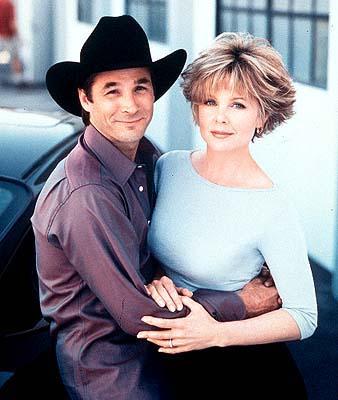
Clint has been described as the "nicest guy in
show business." He has also been described as: Reverent, Rollicking, Poignant,
Laid-Back/Mellow, Cheerful, Organic, Amiable/Good-natured and Earnest. 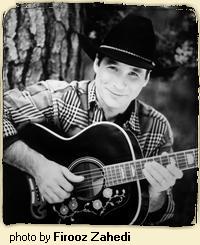 He is a country music traditionalist and has
established many firsts in the country music business. He won the Country Music
Association's Horizon Award in 1989 and was named top male vocalist in 1990.
In 1991, he married Lisa Hartman and joined the Grand Ole Oprey.
He is a country music traditionalist and has
established many firsts in the country music business. He won the Country Music
Association's Horizon Award in 1989 and was named top male vocalist in 1990.
In 1991, he married Lisa Hartman and joined the Grand Ole Oprey.
Campbell, Sir Colin (MacLiver) His outstanding skill, and courage in his leadership of the Highland Brigade, in particular, the Argyle and Sutherland Highlanders, has supplied the British Army with some of its finest traditions. He was probably the most pugnacious officer on record. He was wounded under heavy fire while crossing the Bidassoa river in the Basque country, about where Wellington beat Marshall Soult. He went on to the 'thin red line' in the Crimean War. In between, he bloodily suppressed a West Indian revolt, enforced the debauchery of the Chinese in the Opium War, and, when he was past retirement age, advanced at the head of the Highland troops, to the second relief of Lucknow. His christened name was 'Colin MacLiver' a MacGregor pseudonym, but due to a misunderstanding when aged 16, he was enlisted by his uncle as 'Campbell' in the 9th Foot. He was wrongly entered and the facts were well authenticated, but some in government had not yet heard of the repeal of the latest MacGregor proscription.
General Henry Crerar (MacGregor pseudonym)
|
HENRY DUNCAN GRAHAM CRERAR (b. April 28, 1888, Hamilton, Ont., Can.--d. April 1, 1965, Ottawa, Ont.), Canadian army officer who was that country's leading field commander in World War II.
Crerar graduated from the Royal Military College (Kingston, Ontario) in 1910 and received a commission as an artillery officer. He soon quit the military for better-paying civilian work but rejoined in 1914 to fight in France, where he rose to the rank of lieutenant colonel, once again in the artillery. He remained in the army after World War I, holding various staff posts of increasing importance. In 1940, after Canada had entered World War II, Crerar was promoted to major general and became chief of the Canadian army's General Staff. In this post he worked to train and transport Canadian troops to Britain. He was promoted to lieutenant general in 1941 but then accepted a demotion in order to obtain a field command. He became commander of the 1st Canadian Corps, comprising three divisions, which fought in Sicily (July 1943) and Italy (from September 1943).
He was recalled to England in early 1944 to take command of the 1st Canadian Army, units of which landed on Juno Beach on D-Day (June 6, 1944) during the Normandy Invasion. Operating temporarily under Miles Dempsey's British 2nd Army, Canadian units took part in bitter fighting for the city of Caen (June-July) and then helped to close the northern arm of the Falaise-Argentan gap (August), in which large numbers of Germans were encircled and annihilated. By that time Crerar's army was directly under Field Marshal Bernard Montgomery as part of the 21st Army Group. Operating on the extreme left flank of the Allied drive across France, the 1st Canadian Army took the French Channel ports of Le Havre and Dieppe and then cleared the Scheldt River estuary and captured Antwerp in Belgium. From there, they drove into The Netherlands and then breached the northern end of the Siegfried Line (Germany's fortified western frontier). Crerar had been promoted to general in November 1944, and he retired in 1946.
Fisher, John Wiggins (1913-1981) (MacGregor pseudonym)
Perhaps it was because of the magical region where he was raised that John Fisher loved Canada so much that he later came to be nicknamed "Mr. Canada."
In 1943 John became the CBC's "Roving Reporter", travelling Canada from the Magdalen Islands to the Queen Charlottes to tell stories about the nation's people in the radio series John Fisher Reports. It was during this time that he got his nickname.
In 1957 he changed careers again to head the Canadian Tourist Association and in 1961 became special assistant to the then prime minister, John Diefenbaker. From 1963 to 1968 he was Centennial Commissioner, organizing Canada's 1967 Centennial Celebration. It was during this time that the name Mr. Canada stuck and he even became known by that name internationally.
In 1967 he received the Centennial Medal and the same year was appointed an Officer of the Order of Canada "for his contributions to the success of the Centennial celebrations 1967 as Commissioner of the Centennial Commission and as speaker and author on Canadian subjects." He was awarded honorary doctorates by several universities and in 1978 received the Queen's Jubilee Medal. Among his other awards - one of his earliest - was the Beaver Award in 1946 for his outstanding contribution as a broadcaster and commentator. He won two La Fleche trophies for "distinguished contribution to Canadian radio." He was named an honorary chief by several First Nation communities.
Mr. Canada died in 1981.
(Author's note: I remember listening intently to his melodious voice on CHSJ radio from Saint John, New Brunswick in the early 1950s, recounting tales from Canada's past.) To learn more about this remarkable MacGregor, please click on the following url:
http://www.broadcasting-history.ca/personalities/personalities.php?id=47
DILL, Field Marshal Sir John Greer (1881-1944) Born at Lurgan, County Armagh, Ireland, only son of John Dill and his wife Jane, née Greer, 1881; educated at Methodist College, Belfast, County Antrim, Ireland, Cheltenham College, Gloucestershire, and the Royal Military College, Sandhurst.
He was  commissioned
into 1 Bn, The Prince of Wales's Leinster Regt (Royal Canadians), 1901; service
in Second Boer War, South Africa, 1901-1902; Assistant Adjutant, 1 Bn, The
Prince of Wales's Leinster Regt (Royal Canadians), Fermoy, County Cork, Ireland,
Shorncliffe, Kent, and Blackdown, Dorset, 1902-1906; Lt, 1903; Adjutant, 1 Bn,
The Prince of Wales's Leinster Regt (Royal Canadians), Blackdown, Dorset, and
Devonport, Devon, 1906-1909; Bde Signal Officer, UK, 1909; Capt, 1911; graduated
from Staff College, Camberley, Surrey, 1914; General Staff Officer 3, Eastern
Command, 1914.
commissioned
into 1 Bn, The Prince of Wales's Leinster Regt (Royal Canadians), 1901; service
in Second Boer War, South Africa, 1901-1902; Assistant Adjutant, 1 Bn, The
Prince of Wales's Leinster Regt (Royal Canadians), Fermoy, County Cork, Ireland,
Shorncliffe, Kent, and Blackdown, Dorset, 1902-1906; Lt, 1903; Adjutant, 1 Bn,
The Prince of Wales's Leinster Regt (Royal Canadians), Blackdown, Dorset, and
Devonport, Devon, 1906-1909; Bde Signal Officer, UK, 1909; Capt, 1911; graduated
from Staff College, Camberley, Surrey, 1914; General Staff Officer 3, Eastern
Command, 1914.
He served in World War One, 1914-1918; as Brigade Maj, 25 Bde, 8 Div, BEF (British Expeditionary Force), France, 1914-1916; Battles of Neuve Chapelle and Aubers Ridge, 1915; awarded DSO, 1915; General Staff Officer 2, 55 (West Lancashire) Div, Territorial Force, Western Front, 1916; Maj, 1916; General Staff Officer 2, Canadian Corps, Western Front, 1916-1917; Brevet Lt Col, 1917; General Staff Officer 1, 37 Div, Western Front, 1917; temporary Lt Col, 1917-1918; General Staff Officer 1, Operations Branch, General Headquarters, British Armies in France, 1917-1918; awarded CMG, 1918; temporary Brig Gen, 1918-1920; Brig Gen General Staff, Operations Branch, General Headquarters, British Armies in France, 1918-1919; Brevet Col, 1919.
After the war, he was Brig Gen at General Staff and Chief Instructor, Staff College, Camberley, Surrey, 1919-1922; Col, 1920; commanded Welsh Border Bde, 53 (Welsh) Div, Territorial Army, 1922-1923; Col Commandant, 2 Infantry Bde, Aldershot, Hampshire, 1923-1926; Army Instructor, Imperial Defence College, London, 1926-1928; awarded CB, 1928; Brig General Staff, Western Command, Quetta, India, 1929-1931; Maj Gen, 1930; Commandant, Staff College, Camberley, Surrey, 1931-1934; Col, East Lancashire Regt, 1932; Director of Military Operations and Intelligence, War Office, 1934-1936; Lt Gen, 1936; General Officer Commanding British Troops in Palestine and Transjordan, 1936-1937; created KCB, 1937; General Officer Commanding-in-Chief Aldershot Command, 1937-1939; Gen, 1939.
In the second world war, he saw active service as General Officer Commanding 1 Corps, Belgium and France, 1939-1940; Vice Chief of the Imperial General Staff, 1940; Aide de Camp General to the King, 1940-1941; Chief of the Imperial General Staff, May 1940-Dec 1941; Governor-Designate, Bombay, India, 1941; FM, 1941; Head of British Joint Staff Mission, and Senior British Member, Combined Chiefs of Staff Committee, Washington DC, USA, 1942-1944; appointed GCB, 1942; Col Commandant, The Parachute Regt, 1942-1944; Col Commandant, Army Air Corps, 1942-1944; died, 1944; posthumously awarded US Distinguished Service Medal, 1944.
Greer, Germaine (1939
- ). Feminist icon, anarchist, author,
academic. Germaine Greer was born in 1939 Melbourne,
Australia. After education at the Star of the Sea Convent in Gardenvale, and
then winning a Teacher’s College scholarship, she enrolled at Melbourne
University in 1956. She graduated with a BA honors from Melbourne University
in 1958, an MA with 1st class honors from Sydney University in 1963 and the following
year she went to Cambridge University in England on a Commonwealth
Scholarship. She received a PhD from Cambridge in 1968.
Her most renowned book is The female Eunoch (1970). Other works include The Madwoman's Underclothes (1986), Slip-shod Sibyls (1995), and The Whole Woman (1999). She is currently Professor of English and Comparative Studies at Warwick University in England.
Editor's note: Germaine has always stayed true to her own values and has consistently spoken out against her perception of male domination making her the world's foremost champion of the Women's Liberation movement. A most worthy descendent of perhaps the most stubborn of all Highland tribes.
After participating in the Paraguay Expedition, he cruised the west African coast until the outbreak of the Civil War. Greer was serving on board San Jacinto 7 November 1861 when she stopped the British steamer Trent and removed the Confederate commissioners on their way to England, thereby nearly drawing Great Britain into the war on the Confederate side. Greer served in St. Louis from 1862 to 1863 and was then attached to Rear Admiral Porter's Mississippi Squadron.
While in command of the ironclads Carondelet and Benton, he participated in the Vicksburg campaign and the shelling of Grand Gulf as well as the abortive Red River expedition. After commanding the Naval Station at Mound City, he assumed command of the flagship Blackhawk and then was in charge of conveying Army transports up the Tennessee River. A tour of duty as Assistant to the Commandant at Annapolis after the war was followed by command of Mohongo on the Pacific Station, where Greer was commended for defending American interests in Mexico.
After duty at the Naval Academy between 1869 and 1873, Greer returned to the Pacific Station. In 1878 he commanded Tigress when that ship was sent to find and aid Polaris, wrecked on an Arctic expedition. After special service in Constitution during the Paris Exposition, Greer held a variety of shore posts and then served as commander of the European Squadron from 1887 to 1889. Promoted to Rear Admiral in 1892, he retired 28 February 1895. Admiral Greer died in Washington 17 January 1904.
Jane Greer (born Bettejane Greer,
1924) If a single performance defines film noir, it's Jane
Greer's seductive and sinister turn as Kathie Moffatt in "Out
of the Past". This serpentine saga of lust and larceny is a noir
version of The Story of O: a woman who appears enslaved by men's
desires actually possesses the power to destroy everyone.
Bettejane Greer made her way to Hollywood from Washington, D.C., modeling
Army uniforms and singing with a radio orchestra. A LIFE layout garnered
interest from several studios – and veteran crooner Rudy Vallee, who swept the 19 year-old Greer down the aisle in 1943. It
was a combustible, and brief, union. The pact she couldn't escape was the
one inked with RKO studio boss Howard Hughes,
who added her to his burgeoning list of brunette bad girls.
She almost had her career snuffed out by Hughes, after she resisted his
advances. Greer was determined to be accepted as an actress, not as one of
"Howard's girls."
So, at a feisty 22 years of age, she sued the richest and most powerful
man in Hollywood to get out of her contract – and then dated him.
"I liked his boyishness," she recalls. "We became good
friends, not just lovers."
Greer
was wasted in middling melodramas before making a vivid impression in the
excellent 1947 noir "They Won't Believe Me",
as one of scheming playboy Robert Young's
duped conquests. Good notices earned her the plum role between Robert
Mitchum and Kirk Douglas in "Out of
the Past", where she projected wiles well beyond her years.
She may have betrayed Mitchum on film, but she was loyal in life: while
numerous actresses steered clear of him after his infamous 1948 pot bust,
Greer eagerly reunited with Mitchum for "The Big
Steal", his "comeback" film.
She abandoned noir for more diverse roles, but Mother was the one that
suited her best. She had three boys with second husband Edward Lasker, all
of them with careers in the movie and music industries.
The spell Greer cast as Kathie Moffatt has spanned decades: it accounts
for her appearances in neo-noirs such as "The
Outfit" (1973), "Against All Odds" (the 1984 remake of Out of the Past), and David
Lynch's TV noir, "Twin Peaks".
She even appeared with Mitchum in a Saturday Night Live parody of Out
of the Past, a sure sign you've attained icon status.
Professor John Greer RCA, has been exhibiting his work nationally and internationally for the past 38 years. He has received numerous awards and is represented in many public and private collections in North America, Asia and Europe. His work can be seen on his website.
JUDY GREER July 20 1975, Detroit, Michigan, USA.
With a genuine gift for comedy and an engaging on-screen presence,
Gregg, Allan. Born in Edmonton, Alberta,
Allan went to the University of Alberta where he attained his Bachelor of Arts and
Master of Arts degrees in political science.
In the past 15 years, he has been a
best selling author,
Presently, he is host and contributing editor to Studio 2's interview segments Gregg &
Company, airing twice weekly during TVO's flagship current affairs program and Allan Gregg
in Conversation with . . . , airing Sunday evening. This involvement with these
shows has put him in the enviable position of interviewing some of the world's most
distinguished personalities and cutting-edge thinkers - a role for which he is extremely
well suited.
Before joining TVO, Allan served as president and co-founder of Decima Research,
and was a key strategist of the Conservative Party of Canada. Outside his
professional commitments, Allan works with several high-profile organizations, including
the Strategic Counsel, the writers Development Trust and the Art Gallery of Ontario.
Gregory, Adam: Young Canadian Country
singer. Adam delivers the songs on his debut, 'The
Way Judy
Greer has quickly become one of Hollywood's most captivating young talents.
Having appeared in such diverse films as Jawbreaker (1999), What Women Want (2000), The Wedding Planner (2001) and Adaptation (2002), as well as a number of upcoming feature film projects, Greer turns in
scene-stealing performances opposite some of the industry's biggest stars.
Judy
Greer has quickly become one of Hollywood's most captivating young talents.
Having appeared in such diverse films as Jawbreaker (1999), What Women Want (2000), The Wedding Planner (2001) and Adaptation (2002), as well as a number of upcoming feature film projects, Greer turns in
scene-stealing performances opposite some of the industry's biggest stars.
Greer recently starred opposite Jennifer Garner in Columbia Pictures' romantic comedy, 13
Going On 30 (2004), directed by Gary Winick. Greer played an office colleague to Garner's character, with whom she
shares a checkered past.
She co-stars in writer/director M. Night Shyamalan's The Village (2004), opposite Joaquin Phoenix, Adrien Brody, Bryce
Dallas Howard, Sigourney Weaver and William Hurt.
Set in 1897, the film revolves around a close-knit community that lives with the
knowledge that a mythical race of creatures resides in the woods surrounding
them.
MAJOR GENERAL ROBERT EVANS GREER,
USAF (1915-1976)
Maj. Gen. Robert Evans Greer was born in Orange, Calif.,
in 1915, and graduated from the U.S. Military Academy June 12, 1939.
Immediately thereafter, General Greer entered Primary Flying School at Glendale,
Calif., followed by Basic Flying School at Randolph Field, Texas, and later
graduated from Advanced Flying School at Kelly Field, Texas in June 1940.
After flying school, General Greer was retained as a flight instructor. He
served in this capacity and in various supervisory and command assignments, at
Randolph Field, Texas, Maxwell and Gunter fields, Ga., and finally Hendricks
Field at Sebring, Fla.
In October 1943, General Greer joined the 58th Bomber Wing at Smoky Hill Air
Base, Salina, Kan., as the assistant operations officer (A-3). He was a member
of the first B-29 flight crew to leave the U.S. in March 1944 for the
China-Burma-India Theater.
After serving one year in the CBI Theater as assistant A-3 of the 58th Bomber
Wing and supply officer (A-4) of the 20th Bomber Command, General Greer
accompanied the 58th Bomber Wing to Tinian Island (Marianas) in March 1945,
where he served as deputy chief of staff for supply and maintenance. At the end
of hostilities in August 1945, he served on Iwo Jima and a month later assisted
in staging a long distance flight of three B-29's from Hokaido, Japan, to
Chicago, Ill.
Returning to the United States the latter part of 1945, General Greer was
ordered to Wright Field, Ohio, where he served as assistant to the chief of
administration for technical matters at Headquarters, Air Materiel Command.
Selected to instruct electrical engineering at West Point, he attended Columbia
University for nine months prior to his two-year assignment at the academy.
In June 1949, General Greer was ordered to Headquartaers U.S. Air Force, Office
of the Assistant for Atomic Energy. After three years in the Pentagon, he
attended the Air War College and was retained on the staff and faculty after
graduation in 1953.
In response to a request by Supreme Headquarters Allied Powers Europe, General
Greer was ordered to Paris in July 1954 to serve on the special staff to Field
Marshal Montgomery.
On termination of this assignment, General Greer was
assigned to Headquarters 49th Air Division and later to Third Air Force, in
England, where he served as director of operations and deputy chief of
staff-operations, respectively. During this tour, he checked out in tactical jet
aircraft in which he maintained currency until his departure in July 1957. He
was then assigned back to Headquarters U.S. Air Force as deputy assistant, chief
of staff for guided missiles. He served in this capacity until July 1959 when he
became assistant chief of staff for guided missiles.
General Greer was assigned as vice commander for satellite systems, Air Force
Ballistic Missile Division, until a major reorganization of the Air Research and
Development Command and the Air Materiel Command was effected on April 1, 1961.
At that time, he became vice commander, Space Systems Division, Air Force
Systems Command, Los Angeles, Calif.
The Space Systems Division manages and directs the research and development of
military space programs assigned to the Air Force and conducts certain
scientific space projects in support of the National Aeronautics and Space
Administration, the Army and the Navy.
A rated command pilot with more than 3,500 flying hours, General Greer's awards
and decorations include the Legion of Merit, Asiatic Pacific Campaign Medal,
World War II Victory Medal, American Defense Service Medal, American Campaign
Medal, National Defense Service Medal, Army Commendation Medal and Air Force
Longevity Service Award with four oak leaf clusters.
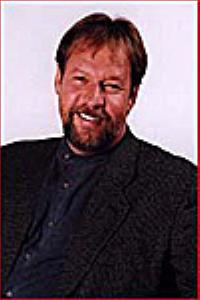 chairman of the Toronto International Film Festival; founding
shareholder in the YTV network; and co-manager and co-publisher of five time Juno
Award-winners, The Tragically Hip. He continues to write on topics ranging from
politics to popular culture, in a variety of national and international publications, and
is a highly respected political strategist, social commentator, and rock-music
aficionado.
chairman of the Toronto International Film Festival; founding
shareholder in the YTV network; and co-manager and co-publisher of five time Juno
Award-winners, The Tragically Hip. He continues to write on topics ranging from
politics to popular culture, in a variety of national and international publications, and
is a highly respected political strategist, social commentator, and rock-music
aficionado.
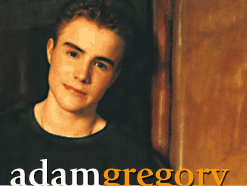
Gregory, James, of Aberdeen. Inventor of the reflecting telescope, which permitted the human mind to explore the remotest depths of space before the advent of radar astronomy.
Greig, Edvard, A son of another Aberdeen family compelled to adopt the name Greig and flee to Norway, who through the medium of Norse tradition and landscape imparted anew the natural lyricism of his clan, as one of the world's greatest composers.
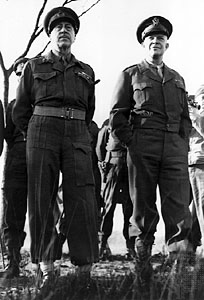
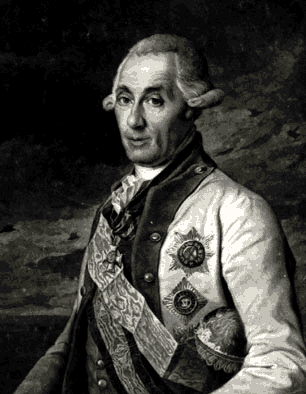 rapidly in the ranks, much faster than
he would have in the Royal Navy. He commanded the Russian fleet at the battle of
Hogeland, where the Russians defeated the Swedes and put an end to Swedish ambitions in
Europe. He was mortally wounded in that battle and was given such a barbarically gorgeous funeral by the Empress that it was featured by every newspaper in Europe. He was so
successful in his mission that he became known as the "Creator of Russian sea
power, "and a national holiday was declared in Russia in memory of him.
rapidly in the ranks, much faster than
he would have in the Royal Navy. He commanded the Russian fleet at the battle of
Hogeland, where the Russians defeated the Swedes and put an end to Swedish ambitions in
Europe. He was mortally wounded in that battle and was given such a barbarically gorgeous funeral by the Empress that it was featured by every newspaper in Europe. He was so
successful in his mission that he became known as the "Creator of Russian sea
power, "and a national holiday was declared in Russia in memory of him. 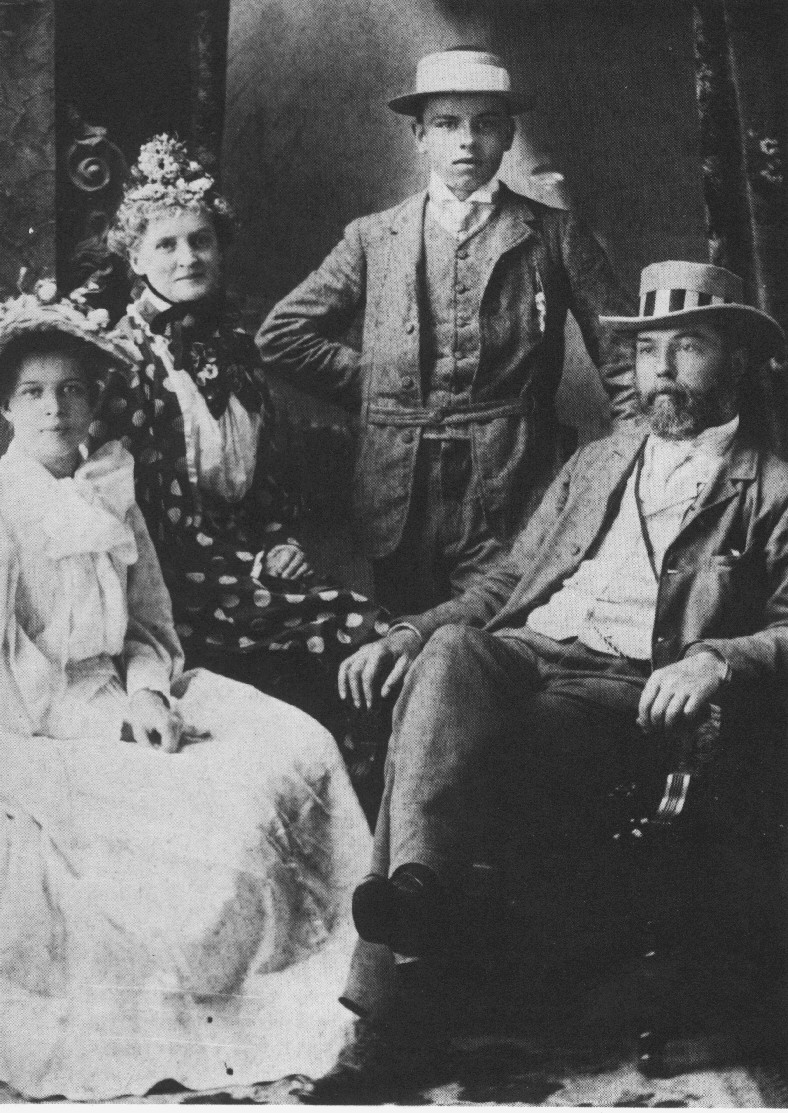 He was a reporter on the Globe and Mail (Canada's
national newspaper) from 1895 to 1896 and a fellow in political science at Harvard
University from 1897 to 1900.
He was a reporter on the Globe and Mail (Canada's
national newspaper) from 1895 to 1896 and a fellow in political science at Harvard
University from 1897 to 1900.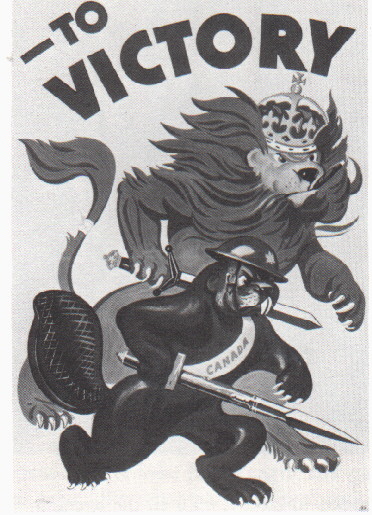

 of
her new thriller, "Red Eye".
But she insists she is definitely not the Hollywood type-- which is why she
continues to live in Toronto.
of
her new thriller, "Red Eye".
But she insists she is definitely not the Hollywood type-- which is why she
continues to live in Toronto.
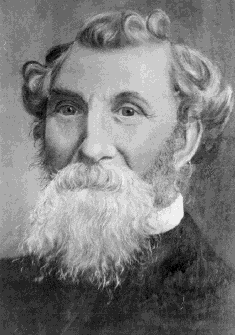
 recent film was 'Moulin Rouge' with co-star Nicole Kidman.
recent film was 'Moulin Rouge' with co-star Nicole Kidman. His parents encouraged him to leave school and pursue his acting goals rather
than be unhappy.
His parents encouraged him to leave school and pursue his acting goals rather
than be unhappy. 
 Ewan is known for totally immersing himself into his characters. He shaved his head
and lost 28 pounds for his role as a heroin addict in Trainspotting, then
donned a wig and top hat to play a devious bachelor in Emma. Ewan is
one of the most promising young actors today and will, no doubt, become a larger presence
in the film industry.
Ewan is known for totally immersing himself into his characters. He shaved his head
and lost 28 pounds for his role as a heroin addict in Trainspotting, then
donned a wig and top hat to play a devious bachelor in Emma. Ewan is
one of the most promising young actors today and will, no doubt, become a larger presence
in the film industry.
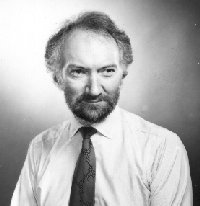

 McGregor, Glenn (
McGregor, Glenn (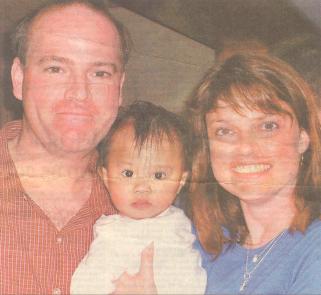
 6th Baronet
and 23rd Chief of the Gregor Clan. A professional soldier, having been Brigade Major
of the Parachute Brigade, and Commanding Officer of the 1st Battalion Scots Guards.
Born 1925 - died 2003.
6th Baronet
and 23rd Chief of the Gregor Clan. A professional soldier, having been Brigade Major
of the Parachute Brigade, and Commanding Officer of the 1st Battalion Scots Guards.
Born 1925 - died 2003. Georgia Militia unit, and was mustered as 3rd Sergeant. Now part of the 1st
Georgia Volunteer Infantry, he saw service in Mexico until his discharge, with
the unit, in New Orleans in May 1847. In 1861 he enlisted in the 17th Georgia
Infantry, commanded by Col H. L. Benning, and was Captain of Company E. By Sharpsburg he had become the 16th commanding
officer of the regiment as his predecessors departed by promotion, resignation,
or death.
Georgia Militia unit, and was mustered as 3rd Sergeant. Now part of the 1st
Georgia Volunteer Infantry, he saw service in Mexico until his discharge, with
the unit, in New Orleans in May 1847. In 1861 he enlisted in the 17th Georgia
Infantry, commanded by Col H. L. Benning, and was Captain of Company E. By Sharpsburg he had become the 16th commanding
officer of the regiment as his predecessors departed by promotion, resignation,
or death.
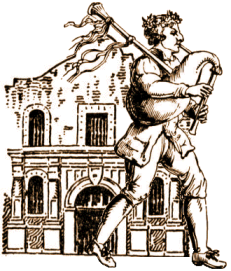 In San
Antonio, Texas there is an old mission where a small band of Texans held out for thirteen
days against the centralist army of General Antonio López de Santa Anna. John McGregor, a
piper from Scotland fought and died with them.
In San
Antonio, Texas there is an old mission where a small band of Texans held out for thirteen
days against the centralist army of General Antonio López de Santa Anna. John McGregor, a
piper from Scotland fought and died with them.
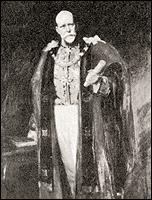 20, 1846, in Towie, Scotland. He studied medicine at the
University of Glasgow and the University of Aberdeen, and worked as a doctor in both
cities, before joining the Colonial service in 1872. He served as a medical officer
in the Seychelles, then was appointed Chief Medical Officer in Fiji from 1875 to
1888. Then he became administrator of British New Guinea. In 1899, he was
appointed governor of Lagos, and served there until 1904,when he became governor of
Newfoundland. In 1909, he became Governor of Queensland, Australia and remained
there until he retired in 1914. He died in Aberdeen, Scotland on July 3,
1919.
20, 1846, in Towie, Scotland. He studied medicine at the
University of Glasgow and the University of Aberdeen, and worked as a doctor in both
cities, before joining the Colonial service in 1872. He served as a medical officer
in the Seychelles, then was appointed Chief Medical Officer in Fiji from 1875 to
1888. Then he became administrator of British New Guinea. In 1899, he was
appointed governor of Lagos, and served there until 1904,when he became governor of
Newfoundland. In 1909, he became Governor of Queensland, Australia and remained
there until he retired in 1914. He died in Aberdeen, Scotland on July 3,
1919.
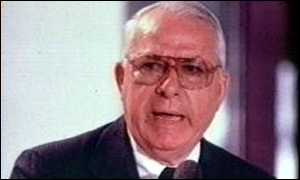 This native of
Kinlochleven, Scotland became a highly successful American Industrialist. He then
returned to Britain becoming consecutively chairman of two leading nationalized
industries: The British Steel Corporation and The National Coal Board.
This native of
Kinlochleven, Scotland became a highly successful American Industrialist. He then
returned to Britain becoming consecutively chairman of two leading nationalized
industries: The British Steel Corporation and The National Coal Board.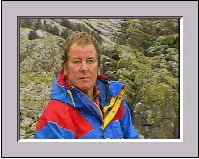
 War-time
Chief of the Clan Gregor, by circumstance notorious
cattle thief and Jacobite Guerrilla. Born at GlenGyle, on Loch Katrine. He
fought as a youngster with John Graham of Claverhouse (1649-89) at Killiecrankle and,
after the collapse of the Jacobite cause, continued the fight as a mercenary. He acquired lands at
Balquhidder, Craig Royston and Inversnaid where he raised cattle, but having
been accused of defaulting on payment of borrowed
money from the Duke of Montrose, his wife and children were
evicted.
War-time
Chief of the Clan Gregor, by circumstance notorious
cattle thief and Jacobite Guerrilla. Born at GlenGyle, on Loch Katrine. He
fought as a youngster with John Graham of Claverhouse (1649-89) at Killiecrankle and,
after the collapse of the Jacobite cause, continued the fight as a mercenary. He acquired lands at
Balquhidder, Craig Royston and Inversnaid where he raised cattle, but having
been accused of defaulting on payment of borrowed
money from the Duke of Montrose, his wife and children were
evicted. Roy has been a journalist since 1972. He
is currently senior columnist with the National Post and has also worked for the Ottawa
Citizen, MacLean's Magazine and the Toronto Star.
Roy has been a journalist since 1972. He
is currently senior columnist with the National Post and has also worked for the Ottawa
Citizen, MacLean's Magazine and the Toronto Star. her CBE but that she owed it to her colleagues. The veteran broadcaster retired from Today at the end of February
after 18 years with the respected news, politics and current affairs
show. She said of her honour: "If it has anything to do with being
on the Today programme for so many years, I confess I owe a lot of
my staying power to the hard work and good humour of my
colleagues."
her CBE but that she owed it to her colleagues. The veteran broadcaster retired from Today at the end of February
after 18 years with the respected news, politics and current affairs
show. She said of her honour: "If it has anything to do with being
on the Today programme for so many years, I confess I owe a lot of
my staying power to the hard work and good humour of my
colleagues."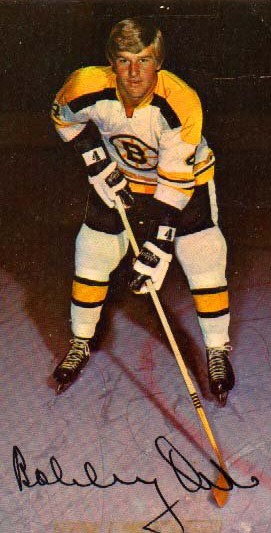 He was so good that he leapfrogged through the
levels and by the age of 12 was playing against young adults 4 years his senior.
He was so good that he leapfrogged through the
levels and by the age of 12 was playing against young adults 4 years his senior. Born in Toronto in 1943. First elected to the legislature in 1975.
Became Leader of the Opposition in 1982. In 1994, the government of France appointed him a Knight of the Order of
the Legion of Honour. Founding Chairman of Toronto Raptors Basketball Club. Currently
Chairman of Cassels, Brock and Blackwell law firm.
Born in Toronto in 1943. First elected to the legislature in 1975.
Became Leader of the Opposition in 1982. In 1994, the government of France appointed him a Knight of the Order of
the Legion of Honour. Founding Chairman of Toronto Raptors Basketball Club. Currently
Chairman of Cassels, Brock and Blackwell law firm.
 Roger Tory Peterson
Roger Tory Peterson